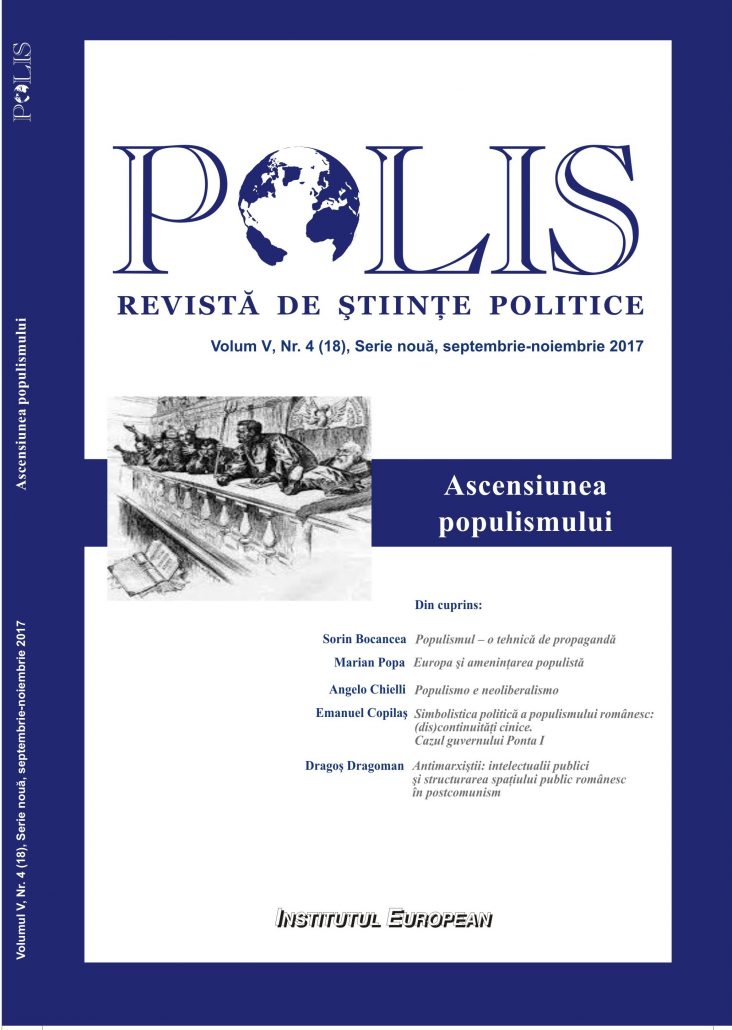Il consenso e la politica: come un apparente
idillio può ospitare dilemmi
Consensus and Politics: How an Apparent
Idyll Can Host Dilemmas
Author(s): Ivan SCARCELLISubject(s): Politics / Political Sciences, Politics
Published by: Editura Institutul European
Keywords: Consensus; Democracy; Political Obligation; Legitimation; Order; Pluralism; Political Philosophy;
Summary/Abstract: You can not address the issue of political obligation, and therefore the very root of the notion of politics, without deepening the concept of “consensus”. Its meaning seems at first glance simple, intuitive, but centuries of political thought have indeed highlighted the complex, sometimes ambivalent, character of the idea of “consensus”. First of all, there are several levels or spheres of consensus in relation to the political system: there can be therefore consensus about the constitutional bases of the state, that is, consensus on the rules of the game, but it must be distinguished from consensus on the policies of governments, which are tendentially more “divisive”. Consensus can also be understood as a natural or spontaneous tendency of human communities, and as such it can be assimilated to the tendency to balance and order; or it can be interpreted as the result of the very work of politics, parties and institutions in their task of problem solving. Political consensus is sometimes assimilated to rational, free and conscious consensus, typical of the contract: while the ideal scheme of the contract does not explain the real origin of the states, it is also true that the model of the contract, once introduced into the political discourse, changes the terms of the latter one, and induces decision-makers to behave as subjects bound by a contractual agreement signed with citizens. Another important theme is the role that trust or distrust play in the various political theories since it affects the role attributed by the same theories to consensus. Even more important is to distinguish the “consensual” theories of democracy from the “agonistic” ones, which in turn may be liberal or radical. However, the crucial reflection to be made concerns the relationship between “existential” or “basic” consensus (expressed, inter alia, by Renan in the famous metaphor of the everyday plebiscite) and formal or “rationalizable” consensus: the former is a necessary but not sufficient condition of the latter; democracy cannot do without the latter but can not even be established in the absence of the former.
Journal: Polis. Journal of Political Science
- Issue Year: V/2017
- Issue No: 4(18)
- Page Range: 113-156
- Page Count: 44
- Language: Italian

